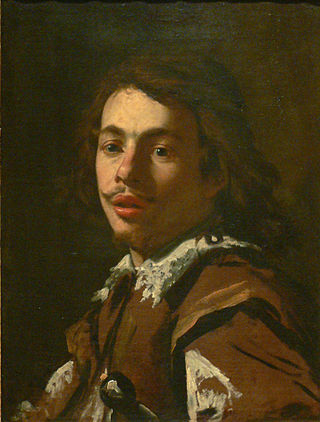Related Research Articles

Henri Desmarets was a French composer of the Baroque period primarily known for his stage works, although he also composed sacred music as well as secular cantatas, songs and instrumental works.

The Diocese of Meaux is a Latin diocese of the Catholic Church in France. The diocese comprises the entire department of Seine-et-Marne. It was suffragan of the Archdiocese of Sens until 1622, and subsequently of Archdiocese of Paris.

Nicolas Bernier was a French Baroque composer.

Sébastien de Brossard, pronounced [se.bɑs.tjẽ də brɔ.saːr], was a French music theorist, composer and collector.
Pierre Robert was a French composer and early master of the French grand motet.
The chapelle royale was the musical establishment attached to the royal chapel of the French kings. The term may also be applied to the chapel buildings, the Chapelle royale de Versailles.
Guillaume Minoret was a French baroque composer.
The grand motet was a genre of motet cultivated at the height of the French baroque, although the term dates from later French usage. At the time, due to the stylistic feature of employing two alternating choirs, the works were typically described as motet pour deux choeurs - motet for double choir.
The Sainte-Chapelle was the name for the chapelle, the men of the clerical and musical institution which attached to the building, the Sainte-Chapelle, in Paris.
Pierre Tabart was a French composer and maître de chapelle. Said to have studied music under 'the best contrapuntist of his time', he served as maître de musique in Orléans until 1683, followed by Senlis from 1683-1689. He then succeeded Nicolas Goupillet as maître de musique of Meaux Cathedral. However, due to the fact that his nine-year contract was left unrenewed, he was succeeded by Sébastien de Brossard in 1699. He later aided his successor to the post in selecting the maître de musique for Évreux Cathedral.

Jean-François Lalouette (1651-1728) was a French composer of the Baroque period.
Eustache Picot was a French musician and composer. He was maître de musique of the maîtrise Saint-Evode at the cathedral of Rouen (1601-1604), and sous-maître of the chapelle royale of Louis XIII, following Nicolas Formé, from 1609 till his death. He was succeeded by Thomas Gobert. Despite his reputation in his own lifetime only fragments of his works survive. The king gave him the abbaye de Chaulmoy and a canonry at the Sainte Chapelle.

Jean-Baptiste-Antoine Lassus was a French architect who became an expert in restoration or recreation of medieval architecture. He was a strong believer in the early Gothic architecture style, which he thought as a true French and Christian tradition, and was opposed to the classical Graeco-Roman styles promoted by the academic establishment.
Jacques Thomelin, also named Jacques-Denis or Alexandre-Jacques-Denis, was a 17th-century French composer and organist.
Pierre Gabriel Expilly was a 17th-century French viol player and composer.
Jean Cathala was a French singer, composer and cornettist, active in the years.
Antoine de Cousu [Du Cousu] was a French cleric, Kapellmeister, composer and theorist, active in Picardy in the first half of the 17th century.

Aubin Vouet was a French painter, the son of Laurent Vouet and younger brother of Simon Vouet, both also painters.

Charles-Henri Plantade was a French classical composer and singing professor. His compositions included several operas, numerous romances, sacred music, and a sonata for harp. He taught singing at the Conservatoire de Paris and was the maître de chapelle to the courts of Louis Bonaparte in Holland and Louis XVIII in France. From 1812 to 1815 he was also the singing master and stage director of the Paris Opéra. Plantade was born in Pontoise and died in Paris at the age of 75. His elder son, Charles-François Plantade, was also a composer.
References
- ↑ Catherine Cessac, Marc-Antoine Charpentier transl. Reinhard G. Pauly 1995
- ↑ Lewis Peter Bennett Sacred repertories in Paris under Louis XIII Paris, Bibliothèque nationale
- ↑ Michel Antoine Henry Desmarest 1965 p34